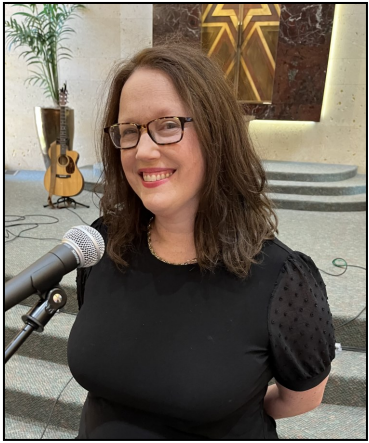Posted on July 29, 2022 by Cantor Heather Aranyi with a note from Cantor Risa Wallach
A note from Cantor Risa Wallach: I recently attended the Women’s Cantor Network conference in Oklahoma City, Oklahoma. There, I had a chance to study with Cantor Heather Aranyi of Congregation Beth Am of Buffalo Grove, Illinois. I found her teaching to be of interest and I share in here with you.
Originally published in the Women’s Cantor Network Newsletter, Summer, 2022. Reprinted with permission.
 We are living in a time of collective trauma, and we are frontline healers. According to the World Health Organization, after one year of the pandemic, anxiety and depression increased over 25 percent worldwide.
We are living in a time of collective trauma, and we are frontline healers. According to the World Health Organization, after one year of the pandemic, anxiety and depression increased over 25 percent worldwide.
How many of us have had the experience of seeing people access their feelings in relation to singing? Why? Why does music have such a profound impact on people and how can we codify the impact of music on the body? As frontline healers, how can we make musical decisions to maximize the healing effects of music on our communities? How can we use music in an intentional way to help people heal from trauma?
Trauma is physical; it has manifestations in the body. There is a great deal of data on the impact of trauma on the body. If you would like to learn more, I highly recommend What Happened to You by Dr. Bruce Perry and Oprah Winfrey and The Body Keeps the Score by Bessel Van Der Kolk.
Here is the good news: music is healing. Music is often talked about as a spiritual and emotional healing. It is also a physical healing. It is a false binary to separate the mental health and physical health of a person. Excess stress may have a terrible effect on the body and can cause a cascade of dysregulation. You may learn more about this at this site: https://www.healthline.com/health/cortisol-tests.
Music can have a profound effect on the regulation of our bodies. Trauma can be thought of as dis-regulation. A cascade of hormones happens in our body when we’re under excess stress and may cause the physiological reactions of fight, flight, or freeze. Prolonged stress has been shown to potentially have long-term effects on the body. But here’s the good news: music may help heal and repair the body.
In addition to serving my community at Congregation Beth Am, I am the co-lead for the Music, Trauma, and the Breath global research working group at Northwestern University, a project funded by the Roberta Buffett Institute for Global Affairs. Our team is studying how we can use music to help children heal from developmental disruptions due to Covid-19. Here is what we know about music, regulation, and healing from trauma:
Communal music making is a profound way to facilitate healing in a community. To each of you, I say,
Kol HaKovod!